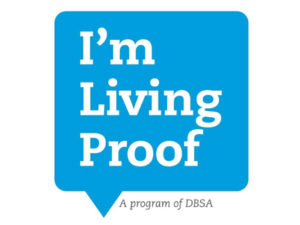It is in my personal opinion that most individuals diagnosed with a mood disorder would say, in all honesty, that their diagnoses changed their lives; I surely would. Would you believe me if I said, though, that my life has slowly changed in a positive way?
I remember the day that I received my current diagnosis fairly vividly as I was experiencing a manic episode. Prior to that experience, I had been diagnosed with major depressive disorder, and of course I had shown symptoms of depression for quite some time (in my case, years). This day was different, though; the psychiatrist used the “b” word. No, I’m not talking about profanity; I’m talking about bipolar disorder. As a 19-year-old junior college student who wanted to pursue nursing as a career, I knew more about bipolar disorder than the average joe. From what I had read, the diagnosis of “bipolar” fit me like a glove. At the time, I was going through my first full manic episode, but I had symptoms of hypomania (low-level mania) occasionally for years, as well as the depression.
Anyway, back to me receiving the fresh news that I had bipolar disorder in August 2011. My doctor decided to prescribe a mood stabilizer for me, in hopes that my mania would subside. Unfortunately, my symptoms had progressed to such a dangerous state that staying at home to weather the manic storm was not the best option; it was time to check myself in to the psychiatric hospital.
Being hospitalized with mania is different in some ways than being hospitalized with depression; I have experienced both. In an elevated mood state, and one that had the potential to cause major life problems, at that, it was almost a relief to come down from the high. Like every patient, though, I went to group sessions in order to learn more about myself and available tools that would help me down the road.
After I returned home, medication and counseling became top priorities. In the past, I had been lax about my medicines and hadn’t always taken them regularly. For me, proper medication management is a necessary part of my treatment; I never miss my doses anymore. Also, finding the ones that work (and in the right combination) was not an easy task for my psychiatrists, but I never lost hope that medicine would be a helping hand. Staying positive through changes in my medication was (and still is) crucial for adjusting to life with symptoms of bipolar disorder.
Counseling appointments were already on my calendar prior to my bipolar diagnosis, since I had symptoms of depression, but I do believe that knowing my new status was enough to wake me up to the reality that I had to work on what I learned in counseling. I finally figured out for myself that counseling wasn’t about just listening to what my social worker said; more importantly, I had to apply her advice and techniques (plus outside reading) to my life in order to see results.
Nothing about treating my disorder was an overnight occurrence, but steadily, my mood and situation improved. I wish I could say that my recovery was strictly an upwards arrow on the graph of my life, but the arrow has pointed in all directions through my journey. I’ve gotten better, for sure, but there have been times when handling my mood disorder wasn’t just a piece of delicious bipolar cake. I have overcome the medications changes I mentioned, a second hospitalization (for a depressive episode), setbacks in my college studies, family dynamic changes, and other smaller obstacles to get where I am today.
Guess what, though? Today looks and feels pretty darn good. I am in my final year of undergraduate work and will graduate with a public health degree in May 2017. I dream of working with either a global aid organization or a nonprofit in the future. I have been seriously dating the man I love for over a year, and we plan on getting married in less than twelve months. These elements of my life would not have happened had I not taken charge of my treatment after August 2011.
As I look back on what I have written, I truly believe that one of my greatest strengths is my writing ability. No matter what, I have that; I won’t let my illness take it away. I also credit my openness to try whatever might work to treat my bipolar disorder for much of my recovery. I’m not saying I ever attempted anything irrational or illegal, but I kept an open mind to the different methods and techniques available for remedying the symptoms I experienced (multiple therapy types, group programs, online support groups, books, etc…). To me, being well means striking a balance between taking care of myself, taking care of my responsibilities, and doing what I love. It means actively working to get better and stay better.
I wouldn’t be where I am today if I had not realized the role that balance plays in recovery. And, I cannot stress enough, keep the hope alive. No matter what religion (or lack thereof) you ascribe to, there is always hope in the human spirit. I know, especially in a depressive state, hope can be the farthest thing from your mind, but whenever I have reminded myself of the hope that’s there, I have kept going. It may not have been my own hope that I was relying on; maybe it was that of family, friends, and those people thinking of me. Hope didn’t make me happy necessarily, but it did help me get to a point where I could restore my own happiness.
Tell Your Story View Stories











